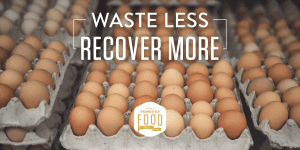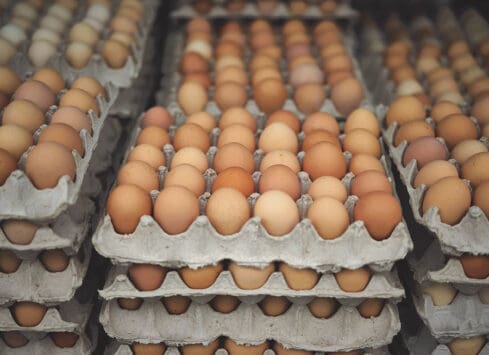Morrison Healthcare Celebrates Stop Food Waste Day
Our commitment kicks off on Friday, April 28, at Compass food service facilities in hospitals, corporate cafes, universities, senior living communities and restaurants across the country. Compass Group chefs across the country will celebrate with live cooking demonstrations and information to build waste awareness — like tips on ways to save at home and creative recipes that focus on using more of what you buy.

Growing up in a rural farming community in Salem, Connecticut, wasting food was simply not an option. While raising three pigs, a chicken and my pet cow, Hamburger, my family and I grew and canned a lot of vegetables. If we had leftovers after meals, we placed them in zip lock bags, placed the food in the freezer and used it for stew. Even when I was in college, my grandmother would save a half a piece of cake and send it to me in the mail.
My personal experience with saving and using every ounce of food is one reason Compass Group’s first-ever Stop Food Waste Day is special for me. According to national studies, about 40 percent of food in the US is wasted or thrown out, much of it taking up precious space in landfills. Stopping food waste is not only our company’s top sustainability priority but also fits with my personal belief that it will improve our environment, make our company more efficient and get any surplus food to the hungry.
Our commitment kicks off on Friday, April 28, at Compass food service facilities in hospitals, corporate cafes, universities, senior living communities and restaurants across the country. Compass Group chefs across the country will celebrate with live cooking demonstrations and information to build waste awareness — like tips on ways to save at home and creative recipes that focus on using more of what you buy.
As a company that serves more than nine million meals each day, Compass is perfectly positioned to take a national leadership role on this issue. Our goal is ambitious: to cut food waste by 25 percent by the year 2020.
Over the past several months, we’ve developed a comprehensive strategy to reach our goal. On Day 1, we’ll start with several measures that include:
- Serving two million pounds Imperfectly Delicious Produce. These fruits and vegetables often languish in fields or are sent to landfills simply because they may not look attractive. Instead, we’ll work with farmers to harvest this food.
- Employing “Waste Not,” a web-based tracking tool to measure waste in our cafes. Using this proprietary technology, we’ll be able to measure waste at various stations in a café and make changes to stop it;
- Introducing “Save the Food” marketing and root-to-stem recipes.
Our April 28 kickoff is just the beginning. As we rollout Stop Food Waste throughout Compass, our chefs will take additional measures to stop food waste. They will serve consistent portions of food; create smart menus that maximize the use of ingredients and implement more efficient menu planning and inventory management.
While our strategy focuses heavily on stopping waste from the food source to the table, an important component of the Stop Food Waste program is developing responsible food recovery and donation programs. Working with healthcare partners and local communities to help low-income, disabled and other less fortunate residents will have an impact on population health management.
For example, we want to expand programs similar to the one Morrison Healthcare has developed with Mission Health System and the Asheville Poverty Initiative in Asheville, N.C.
Since October 2015, Morrison has provided nearly 50 pounds of fresh, nutritious food each week to the initiative, which serves free meals at its 12 Baskets Café. Morrison’s donations serve 160 meals each month to feed Asheville residents seeking healthy, nutritious food. At the same time, executive chef Mark Albano has reduced its food costs at Mission Health System by two percent through more efficient menu planning and inventory management.
My goal is to help food service operators throughout Compass be successful by providing them with additional tools. For example, we plan to work with a food waste consulting group that will visit some of our facilities and provide recommendations on how we can reduce waste without affecting the quality of our food service. As we begin this journey, we should be able to reduce waste, become a more efficient company and help the hungry in our communities. I’m looking forward to the ride.




